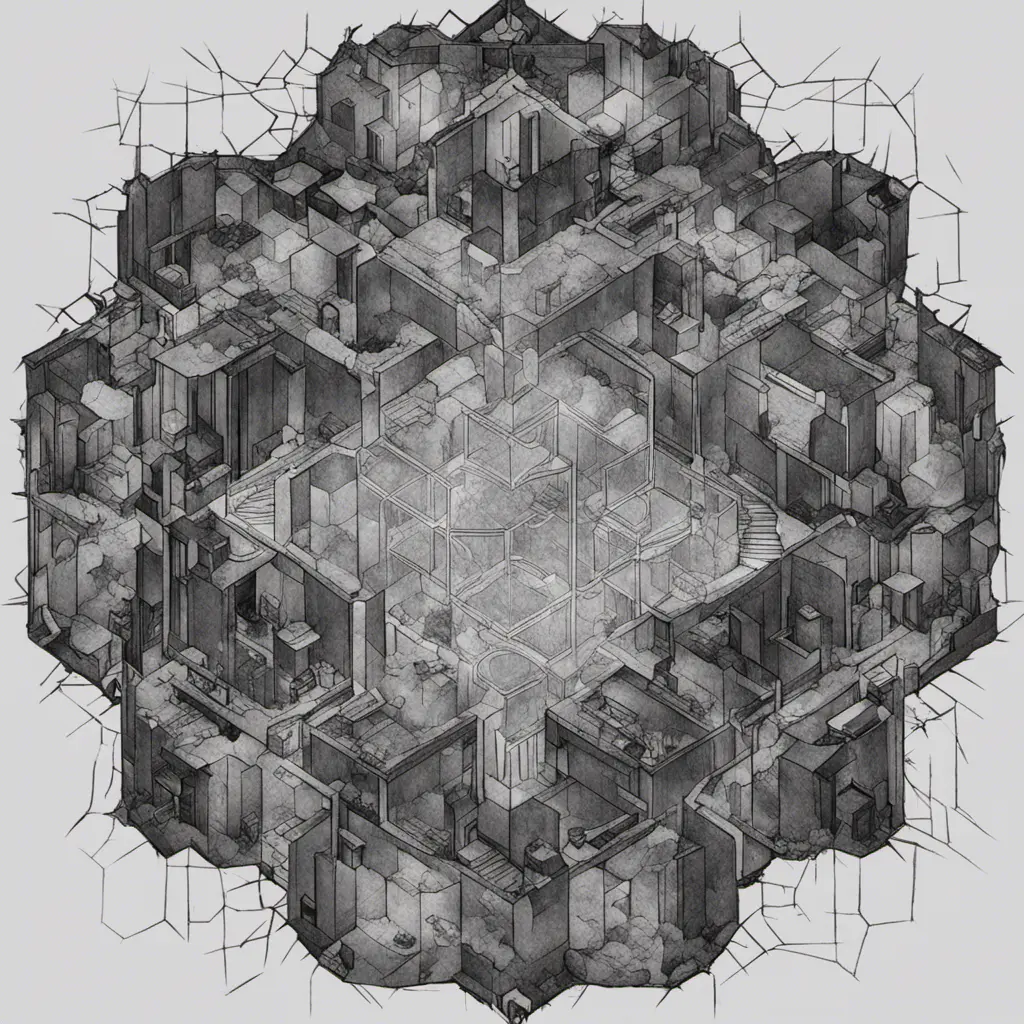- A Roman dodecahedron, a mysterious 12-sided metal object, was discovered in the village of Norton Disney in England.
- The artifact is in excellent condition and is larger than many other dodecahedrons that have been found.
- The purpose of these objects remains unclear, but theories suggest they may have been used for ritualistic or religious purposes.
Ancient Romans be like: “haha, they don’t know how to use the three dodecahedrons.”
For those that don’t know
Step 1: roll up a half orc barbarian
Step 2: wield a great axe
Step 3: roll a natural 20 on an attackNow you use the three dodecahedrons!
But a dodecahedron is a d12
Yep, and a greataxe, which is the most common barbarian weapon, uses 1d12 as damage die.
Now, a crit (natural 20 on a 20 sided die) doubles the dice and makes it 2d12, and half orcs have a feature so that they can roll an additional weapon damage die when critting on their attack, which makes it 3d12.
If it came down to figuring out the three dodecahedrons or using the communal sponge on a stick, I’d take the risk with the dodecahedrons.
may have been used for ritualistic or religious purposes
Aka they have no fuckin clue what it’s for as that’s what they always say when they have no fuckin clue what something’s for.
Kinda annoying that that’s the first go to when not having a fuckin clue what something’s for.
Last time people 3d printed a whole bunch and handed them out to random people to see what they used them for.
Some old British granny used them to knit fingers for gloves and apparently it’s awesome at that.
It wouldn’t be something everyone owned, no one family needs that many gloves.
But one that gets shared amongst a community/village makes it a worthwhile investment. Especially in cold ass England.
There were likely wooden ones as well that didn’t survive, but it makes sense we find heavy duty ones in England of all places.
I wouldn’t say it’s awesome at glove fingers. It can be used to knit glove fingers but other configurations would be much better. It’s like guessing that a Super Nintendo was used as a hammer: yeah, you could use it for that if you tried really hard, but if you were setting out to make a hammer you wouldn’t make it Super Nintendo-shaped. https://www.cracked.com/article_32125_no-these-mysterious-roman-artifacts-probably-arent-knitting-aides.html
Man, cracked used to be a good source of information, not so much in the last 20 years tho…
20 years? They were fine until that broadcasting company bought them in 2016 and highly pushed Facebook video content. That failed and they paid damn near everyone off. I remember their video content being some random old dude for a couple years after and no new articles. They’ve got a writing staff now but their comedic chops are pretty lacking.
When all you got is a Super Nintendo, everything looks like a middle aged plumber.
Except there’s no records of that kind of knitting existing for best part of a thousand years and none of them show the wear you’d expect if that was the use.
https://en.m.wikipedia.org/wiki/Nålebinding
One style was, this method was invented in 6,500 BC for example.
I wonder if the threads would cause wear patterns that could be analyzed. Or if they were found with fibers around them.
You need to read Motel of the Mysteries. Here’s the premise:
It is the year 4022; all of the ancient country of Usa has been buried under many feet of detritus from a catastrophe that occurred back in 1985. Imagine, then, the excitement that Howard Carson, an amateur archeologist at best, experienced when in crossing the perimeter of an abandoned excavation site he felt the ground give way beneath him and found himself at the bottom of a shaft, which, judging from the DO NOT DISTURB sign hanging from an archaic doorknob, was clearly the entrance to a still-sealed burial chamber. Carson’s incredible discoveries, including the remains of two bodies, one of then on a ceremonial bed facing an altar that appeared to be a means of communicating with the Gods and the other lying in a porcelain sarcophagus in the Inner Chamber, permitted him to piece together the whole fabric of that extraordinary civilization.
Measuring dry spaghetti portions is a ritual.
Well it’s probably not for making cakes.
Pure speculation
It’s for unlocking the Stargate.
I still think they’re a test/show of skill for blacksmiths
they’ve been found in coin hordes and the like… they were definitely more valuable than that
An item that only the absolute best blacksmiths or metalworkers could make.
Sounds valuable.
As an apprentice blacksmith, yeah. I would have difficulty attempting to make that thing out of bronze, and would definitely learn more about smithing than I do now, just making the thing.
You could try making one as your next project?
But why were they only in northern areas?
Wouldn’t they melt them down to make something more useful once it was complete and their skills proven?
If the craftsmanship theory is correct they would probably put them on display to advertise their business.
Machinists will often have a tuner’s cube on their desk. It does have a bit of the same feel.
We’re also in the 21st century, with an abundance of wealth and material possessions the past could only imagine. We can afford lots of useless shit laying around.
I’ve always leant towards the gloves theory myself.
If it’s a display of skill then it’s an advertisement, which is useful. Then again, I’m not an archaeologist or historian, and even if I was apparently I’d still have no clue.
True but who are you going to advertise to? A village would be lucky to have a smith at all, and travel was dangerous so you’re not going to go shopping for someone else. Especially not in the backwater edges of the Roman Empire/Britain.
I am guessing they are a tool of some sort. You can do a lot with angles and rope with two of these.
A new hand touches the beacon!
So this is what that one meme was about.
I feel like this is just some kind of fidget spinner of ancient times. They must’ve had fads like that too.
I thought these were for knitting? Has that been disproven or was I trolled?
It just hasn’t been proven. Its a fun hypothesis but it could be fucking anything.
Ah, thanks for that. I was beginning to think that I imagined it.
They used to stuff those things full of peanut butter and dog treats then put it in the freezer for a few hours. It kept their golden retrievers busy for a while.
because it has 12 sides, the dodecahedron was associated with the zodiac… some mystics thought it represented the physical realm… it’s a perfect 3 dimensional shape if you care about the Golden Mean…
Ritual purposes
Oh so no idea what they were for, got it. I can’t believe news orgs still seem not to have caught on about “ritual” artifacts…
Maybe the romans just played a lot of barbarian characters?
I hate to break it to you, but ritual and religion have been a thing forever.
Walk into most homes today, and you’ll find a bunch of ritual objects. Crosses, Rosary Beads, Menorahs, and dozens of other every day objects that you’d never think twice about.
The ancient world had even more such objects.
A fun example that I can think of off the top of my head is the demon trapping bowl. It was common in parts of the Middle East, and how it worked is you’d write a bunch of incantations on the inside of the bowl in a spiral down to the center, and then bury it upside down under the main entrance to your home.
That’s clearly a ritual object. It serves no other purpose.
These dodecahedra might be the same. After all, there are 12 zodiac and playing with the meaning of the zodiac was quite popular in the Roman world at various times.
A bit late replying, but: Sorry, I should maybe have been more clear. This is a very well documented in-joke that I was referencing. It’s a catchall category; “Ritual” is the label given to objects that archeologists don’t have a clue what are. This is extremely prevalent, and if you ask any archeologist about it they’ll verify this.
It’s a well known joke for armchair archeologists.
For the people who work in the field, they know damn well that often times, “ritual object” is, in fact, the correct answer.
Hell, there are practical tools that were also ritual objects. Because humans can turn everything into part of a religion.
I don’t know how to tell you this, but it’s not just “armchair” archeologists that use this one. Also, jeeze, coming in excessively hostile to a reply to a 5-day-stale comment.
Ritual object is the correct answer sometimes, but I don’t think you’ve met many archeologists if you’re unaware of the scope here. There’s many reasons “ritual” became a catchall, the prevalence of modern ritual objects among them (sherds are so miserable that it destroys the capacity for humor?). But I urge you to ask some archeologists, even armchair archeologists, about mayan chicken holes sometime. Its a pretty famous example of “ritual” being proven wrong - but it hilights the extent that “ritual” is just the default explanation for all things that lack strong evidence to explain them.
By the late empire, if you were playing a legion campaign it was pretty standard to run 30-40% barbarians.
the village of Norton Disney
Is that where they’re building the new theme park?
I can’t wait for the antivirus ride
The problem is, once you get on it’s almost impossible to get off again.
I want to get off Mr. McAfee’s Wild Ride
We have random doodads and thingamabobs that someone made specifically for people to buy and just keep on a shelf for decoration; why can’t that be true of ancient things like these? They certainly look like some random knick knack that would sit on a desk and serve no other purpose.
Some theories are that they functioned as measuring devices, calendars, ornamental scepter toppers, weapons or tools.
Early D&D dice?
The Romans had dice that would roll better.
They seem to have favored d20 and d6, but other dice have also been found.
But I would bring my own to a Roman game of D&D, because the Romans also tended to use lopsided dice (They believed in fate rather than luck, so hand waved away loaded dice)
I go with the dices too
That’s fascinating! I had to look it up. They did indeed have d20s.
Divination – seeking advice about the unknown from the supernatural – seems to be the most likely purpose for the Dakhleh die: the polyhedron might have been thrown in order to determine a god who might assist the practitioner.
Awesome. So they were basically used in cleric spellcasting.
It’s clearly a cockring.
For a biblically accurate cock
From Plato’s Timaeus:
And seeing that there still remained one other compound figure, the fifth [i.e., the dodecahedron], God used it up for the Universe in his decoration thereof.
There’s speculation that the Neoplatonists equated the twelve faces of the dodecahedron with the zodiac, and thus with the heavens. (The other four regular solids were equated with the four elements.)
With a solid 15 minute youtube video under my belt I’m in camp glove.






















